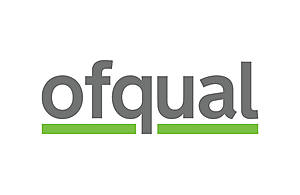Welsh stations in line for share of £20m UK Government funding boost for accessibility improvements
- Latest in a series of improvements by the UK Government Transport Secretary to accelerate the pace of change for a more accessible transport network
- Follows launch of new campaign to improve journeys for disabled people when using public transport
Disabled passengers are set to benefit from accessibility improvements at Grangetown, Pontypool & New Inn, Llantwit Major and Neath train stations thanks to a £20m UK Government fund.
The enhancements announced by the UK Secretary of State for Transport Grant Shapps today (26 February) are funded through the Access for All programme and will include new lifts, accessible toilets and customer information screens.
It comes as the UK Government launches its campaign to improve the journeys of disabled passengers on public transport.
Secretary of State for Transport Grant Shapps said:
The ability to travel easily from A to B is an essential factor for our day to day lives – but is not the reality for everyone.
I recognise that we have much more to do, which is why we’re making 124 train stations across the country more accessible – a key part of levelling-up access for disabled people to transport and opening up opportunities for all.
This is just the start of a much more ambitious agenda. My goal is to go much further in the years ahead to help ensure that our country’s transport system becomes one of the most accessible in the world.
Secretary of State for Wales Simon Hart said:
Accessible transport is vital for connecting people with work, family and friends. That is why the UK Government is committed to building a better railway for all passengers in every corner of Wales.
As part of that commitment the UK Government is providing a £20 million funding boost to stations to improve accessibility. This will open up routes across Wales to disabled people allowing more passengers to travel independently and helping us to move towards a truly accessible transport network.
The enhancements are being made through the Access for All programme which, since 2006, has already made more than 200 stations step free, as well as delivered smaller scale accessibility improvements at more than 1,500 others to improve passenger experience.
Today’s £20million is part of a £300million package announced last year which is already providing accessible, step free routes at 73 stations across Great Britain, making it easier for disabled people to travel on the UK’s rail network.
Minister for Disabled People Justin Tomlinson said:
Everyone using our rail network deserves platforms and toilets they can use and this £20million investment to improve 124 railway stations across the country will make a huge difference to disabled people.
This Government is committed to levelling up the playing field and later this year we’ll launch a national strategy which will ensure disabled people have equal access to all spheres of life.
This follows the launch of the ‘it’s everyone’s journey’ advertising campaign to highlight how we can all play a part in making public transport inclusive. The campaign is being supported by more than 100 partners, including First Group, WHSmith Travel and the Alzheimer’s Society.
Department for Transport research has shown that behaviours that make public transport a daunting place for disabled people are often unconscious, such as not looking out for a fellow passenger who might need a seat or be in distress.
‘It’s everyone’s journey’ will raise awareness about the needs of disabled people when using public transport, particularly people with non-visible impairments, and will also prompt members of the public to think and consider how their behaviour might impact others.
Alongside this, the Department has also launched its Inclusive Transport Leaders scheme, an accreditation scheme which will encourage, celebrate and promote best practice in inclusive transport.
Operators, such as bus and train companies, are encouraged to sign up to the Inclusive Transport Leaders Scheme, where they will work towards one of three accreditation levels by demonstrating the steps they have taken to improve the travelling experiences of disabled passengers, older people, and those with reduced mobility.
These improvements form part of the wider Inclusive Transport Strategy and supports the UK Government’s ambition of achieving equal access for all on public transport.
